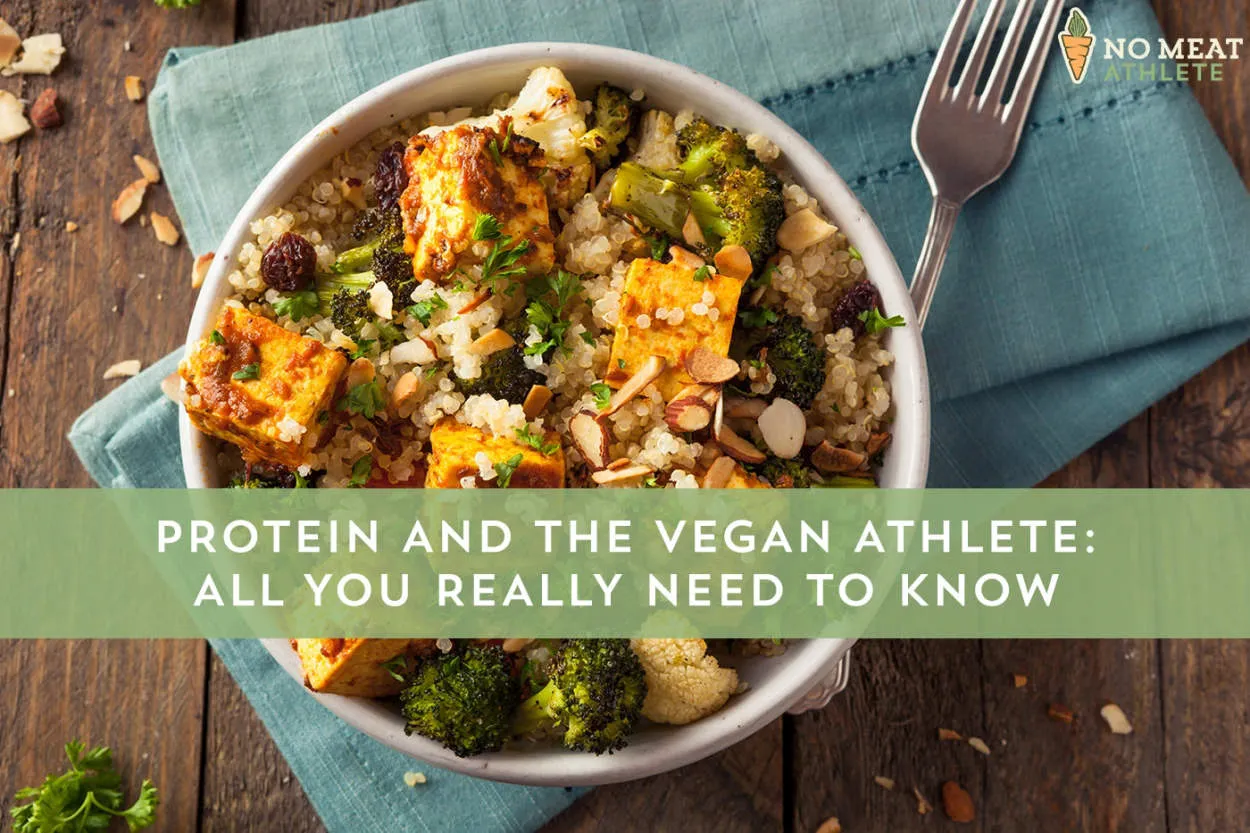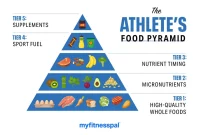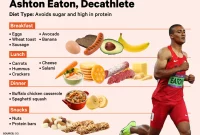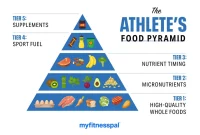Are you an athlete who is considering switching to a vegan diet? Look no further than “The Athlete’s Guide to Vegan Nutrition.” In this comprehensive guide, we explore the benefits of a plant-based diet for athletic performance and provide valuable tips and strategies for optimizing your nutrition to fuel your workouts and reach your fitness goals.
Adopting a Vegan Diet for Sports Performance
As athletes, our nutrition plays a crucial role in our performance. Whether you are a professional athlete or simply enjoy being active, adopting a vegan diet can have numerous benefits for your sports performance. Here are some key reasons why:
Improved Recovery
Vegan foods are packed with natural antioxidants and anti-inflammatory compounds. This helps reduce inflammation and promotes faster muscle recovery after intense workouts. By adopting a plant-based diet, athletes can accelerate their recovery time and enhance their overall performance.
Enhanced Endurance
A vegan diet rich in whole grains, fruits, vegetables, and legumes provides athletes with an abundance of complex carbohydrates. These carbohydrates are the primary fuel source for our bodies during exercise, ensuring sustained energy levels. This can greatly improve an athlete’s endurance and stamina during long training sessions or competitions.
Reduced Inflammation
Animal products, such as red meat and dairy, can contribute to inflammation in the body due to their high saturated fat content. By eliminating these foods and focusing on plant-based alternatives, athletes can reduce chronic inflammation. This can lead to improved joint health, decreased muscle soreness, and better overall recovery.
Optimal Weight Management
A vegan diet is naturally lower in saturated fats and cholesterol, making it easier for athletes to maintain a healthy weight. Excess weight can hinder an athlete’s performance, particularly in sports that require speed and agility. By adopting a plant-based diet, athletes can achieve and maintain their optimal weight, enhancing their agility and overall athletic ability.
Increased Nutrient Density
A vegan diet encourages a higher intake of nutrient-dense foods such as fruits, vegetables, nuts, and seeds. These foods are rich in vitamins, minerals, and antioxidants that support overall health and performance. Athletes who consume a well-balanced vegan diet can obtain all the necessary nutrients, including protein, while reducing their intake of unhealthy fats and processed foods.
So, whether you are looking to improve your recovery time, boost your endurance, reduce inflammation, manage your weight, or increase the nutrient density in your diet, adopting a vegan diet can be a game-changer for your sports performance. Make sure to consult with a registered dietitian or sports nutritionist to create a personalized plan that meets your individual needs as an athlete.
Protein Sources for Vegan Athletes
When it comes to fueling the body for sports performance, protein plays a crucial role in the diet of athletes. While many people associate protein with animal-based sources, vegan athletes have a wide range of plant-based options to ensure they meet their protein needs. Here are some top protein sources for vegan athletes:
1. Legumes
Legumes, such as lentils, chickpeas, and black beans, are excellent sources of plant-based protein. They are not only rich in protein but also provide essential nutrients like fiber, iron, and antioxidants. Including legumes in your diet can support muscle recovery and promote overall health.
2. Tofu and Tempeh
Tofu and tempeh are soy-based products that are packed with protein. They are versatile ingredients that can be used in various dishes, from stir-fries to sandwiches. Additionally, they are great sources of calcium and iron, which are important for maintaining strong bones and optimal oxygen transport in the body.
3. Quinoa
Quinoa is often referred to as a super grain due to its high protein content and complete amino acid profile. It is an excellent alternative to traditional grains and can be used as a base for salads, bowls, or as a side dish. Quinoa is also a good source of fiber, magnesium, and antioxidants.
4. Nuts and Seeds
Nuts and seeds, such as almonds, walnuts, chia seeds, and hemp seeds, are not only rich in healthy fats but also provide a good amount of protein. They can be incorporated into smoothies, oatmeal, or as a topping for salads. These nutrient-packed foods also offer essential vitamins, minerals, and antioxidants.
Remember, it’s important for vegan athletes to consume a variety of protein sources to ensure they receive all the essential amino acids needed for optimal performance and recovery. By incorporating these protein-rich foods into their diets, vegan athletes can thrive in their athletic pursuits.
Balancing a Vegan Athletic Diet
Athletes who follow a vegan diet can still achieve optimal nutrition and performance by carefully planning their meals. Here are some key considerations to help athletes maintain a vegan athletic diet:
1. Adequate Protein Intake
Protein is crucial for athletes as it helps with muscle repair and growth. Plant-based protein sources such as tofu, tempeh, seitan, legumes, and quinoa should be incorporated into each meal. Including a variety of these protein-rich foods throughout the day will ensure athletes meet their protein needs.
2. Essential Nutrients
While most nutrients can be obtained from a well-planned vegan diet, athletes should pay special attention to certain nutrients like iron, calcium, vitamin D, and vitamin B12. Leafy greens, nuts, fortified plant-based milk, fortified breakfast cereals, and supplements can help athletes meet their nutrient requirements.
3. Carbohydrate Fuel
Carbohydrates provide the primary source of energy for athletes performing intense workouts or training sessions. Whole grain bread, pasta, rice, oats, and fruits should be included in an athlete’s meal plan to provide sustained energy and support optimal athletic performance.
4. Healthy Fats
Fats are essential for hormone production and absorption of fat-soluble vitamins. Plant-based fats such as avocados, nuts, seeds, and olive oil should be consumed in moderation to ensure athletes receive their required intake of healthy fats.
5. Hydration
Maintaining proper hydration is crucial for all athletes. Water should be the primary beverage throughout the day and during workouts. Electrolytes, which can be obtained from natural sources like coconut water or specialized vegan electrolyte drinks, are particularly important during intense exercise sessions.
6. Meal Planning
Planning meals in advance plays a vital role in ensuring athletes have access to balanced vegan options. Preparing meals and snacks ahead of time can help athletes stay on track with their nutritional goals, preventing them from making impulsive and less healthy food choices.
By paying attention to their protein intake, essential nutrients, carbohydrates, healthy fats, hydration, and meal planning, athletes can successfully balance a vegan athletic diet. With proper planning and dedication, vegan athletes can achieve peak performance while enjoying the benefits of a plant-based lifestyle.
The Challenges and Benefits of Veganism in Sports
Veganism, a plant-based diet that excludes all animal products, has gained popularity in recent years not only among the general population but also among athletes. While following a vegan lifestyle can present challenges in meeting specific nutrient requirements, it also offers numerous benefits for athletes.
Challenges
One of the main challenges athletes may face when adopting veganism is ensuring adequate protein intake. Animal products are typically rich in high-quality protein, which is crucial for muscle repair and growth. However, plant-based protein sources such as legumes, tofu, tempeh, quinoa, and nuts can provide sufficient protein when consumed in appropriate amounts.
Another challenge lies in obtaining certain micronutrients. Vitamins like B12, which is mainly found in animal products, and iron, which is better absorbed from animal sources, may require careful attention and supplementation in a vegan diet. Proper meal planning and consulting with a registered dietitian can mitigate these challenges.
Benefits
Despite the challenges, veganism offers several benefits for athletes. Plant-based diets are typically rich in antioxidants, which can aid in reducing exercise-induced inflammation and oxidative stress. Fruits, vegetables, and whole grains, staples of a vegan diet, provide essential vitamins, minerals, and fiber that promote overall health and well-being.
Furthermore, adopting a vegan lifestyle can lead to improved cardiovascular health. The consumption of plant-based foods can help lower blood pressure, reduce cholesterol levels, and decrease the risk of heart disease. These benefits are particularly beneficial for athletes aiming to optimize their performance and longevity.
Lastly, veganism has a positive impact on the environment. Animal agriculture contributes significantly to greenhouse gas emissions and deforestation. By choosing a vegan diet, athletes can contribute to a more sustainable and eco-friendly planet, aligning their values with their food choices.
Vegan Meal Planning for Athletes
As an athlete following a vegan diet, proper meal planning is essential to ensure optimal performance and nutrition. Here are some key considerations for planning your vegan meals:
1. Prioritize Plant-Based Protein
Protein is crucial for muscle repair and recovery. Include a variety of plant-based protein sources such as legumes, tofu, tempeh, seitan, quinoa, and hemp seeds. Aim to meet your individual protein needs based on your activity level and goals.
2. Include an Abundance of Colorful Fruits and Vegetables
Fruits and vegetables provide essential vitamins, minerals, and antioxidants. Different colors indicate different nutrient profiles, so aim for a rainbow of colors on your plate. Include leafy greens, berries, citrus fruits, cruciferous vegetables, and more.
3. Incorporate Whole Grains and Healthy Fats
Opt for whole grains like brown rice, quinoa, oats, and whole wheat bread to provide sustained energy. Healthy fats from sources such as avocados, nuts, seeds, and olive oil are also important for overall health and nutrient absorption.
4. Don’t Forget About Essential Nutrients
Vegan athletes should pay attention to certain nutrients such as vitamin B12, iron, calcium, and omega-3 fatty acids. Consider fortified plant-based milks or supplements to ensure adequate intake of these nutrients.
5. Stay Hydrated
Athletes need to stay properly hydrated for optimal performance. Consume plenty of water throughout the day and consider replenishing electrolytes with coconut water or a homemade sports drink.
6. Plan and Prep Meals Ahead of Time
Proper vegan meal planning involves meal prepping. Set aside time each week to plan and prepare your meals and snacks in advance. This will help you stay on track with your nutritional goals.
7. Consider Working with a Registered Dietitian
Every athlete’s nutritional needs are different. If you’re unsure about meeting your specific needs, consult with a registered dietitian who specializes in vegan athlete nutrition. They can provide personalized guidance.
Conclusion
In conclusion, adopting a vegan diet can provide athletes with ample nutrition for optimal performance. By carefully planning and diversifying their meals, athletes can ensure they meet their protein, iron, calcium, and vitamin needs. Vegan diets offer numerous health benefits, such as reducing the risk of heart disease and improving overall well-being. With the right knowledge and proper guidance, athletes can thrive on a plant-based diet while achieving their athletic goals.




